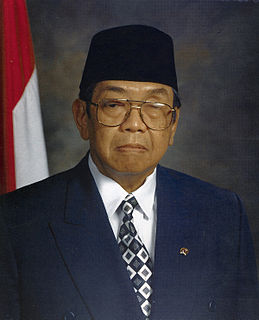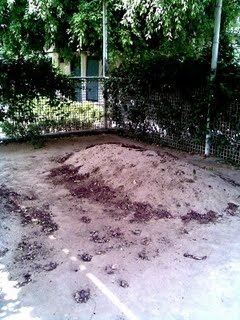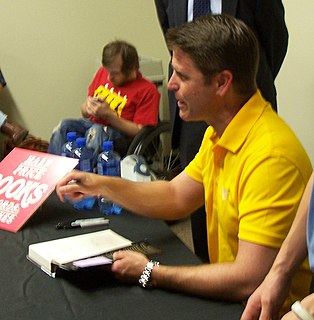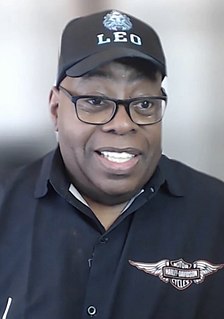A Quote by Edward Said
It is very easy to make wild generalizations about Islam. All you have to do is read almost any issue of The New Republic and you'll see there the radical evil that's associated with Islam, the Arabs as having a depraved culture, and so forth. These are impossible generalizations to make in the United States about any other religious or ethnic group.
Related Quotes
There has always been a confusion in the West about -Islam and about the Middle East and the assumption that the countries are Arab. Iranians very much object to that. They are very proud of their own history, but they have this real inferiority-superiority complex thing about the Arabs and the position of Islam in Iran. One of the reasons why Shi'a Islam is so entrenched in Iran is because it has allowed the Iranians to distinguish themselves from the Arabs, who are mostly Sunni.
Islam is a revolutionary faith that comes to destroy any government made by man. Islam doesn't look for a nation to be in better condition than another nation. Islam doesn't care about the land or who own the land. The goal of Islam is to rule the entire world and submit all of mankind to the faith of Islam. Any nation or power in this world that tries to get in the way of that goal, Islam will fight and destroy.
Black lives certainly do matter - that's one thing. But, it's just that in every profession, there are bad, as well as there are good. I think it's wrong to make cops - or any group - out to be the enemy based on a generalization. Stigmas and generalizations about groups are what get this world into such turmoil.
We have reaffirmed again and again that the United States is not and never will be at war with Islam. Islam teaches peace, and when it comes to America and Islam, there is no us and them, there's only us, because millions of Muslim Americans are part of the fabric of our country. So, we reject any suggestion of a clash of civilizations.
When I was growing up, we often heard Islam in the form of a slogan: "Islam is the solution," but no one ever told me that Islam can be a burden... Very few Muslims write about Islam creatively because I don't think we're given permission to. I think that's the bane of modern Islam. It's been reduced to slogans.
One of the big problems in this field is that there's so much mystification that surrounds talk of the Shari'a, whether its saying that Islam is all about peace or whether its people saying that Islam is all about Jihad and all about suicide bombs. People will make statements which don't seem to be backed up by any sort of historical context.
Where it is the majority religion, Islam does not recognize religious freedom, at least not as we understand it. Islam is a different culture. This doesn't mean that it's an inferior culture, but it is a culture that has yet to connect with the positive sides of our modern Western culture: religious freedom, human rights and equal rights for women.





































